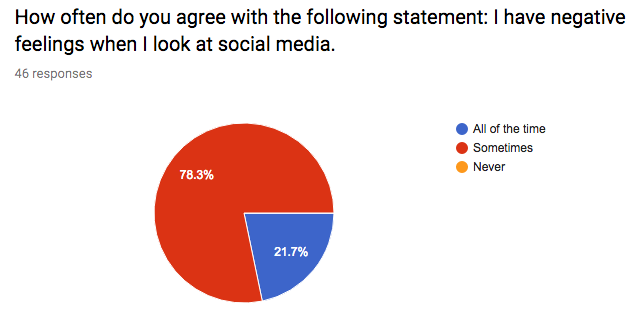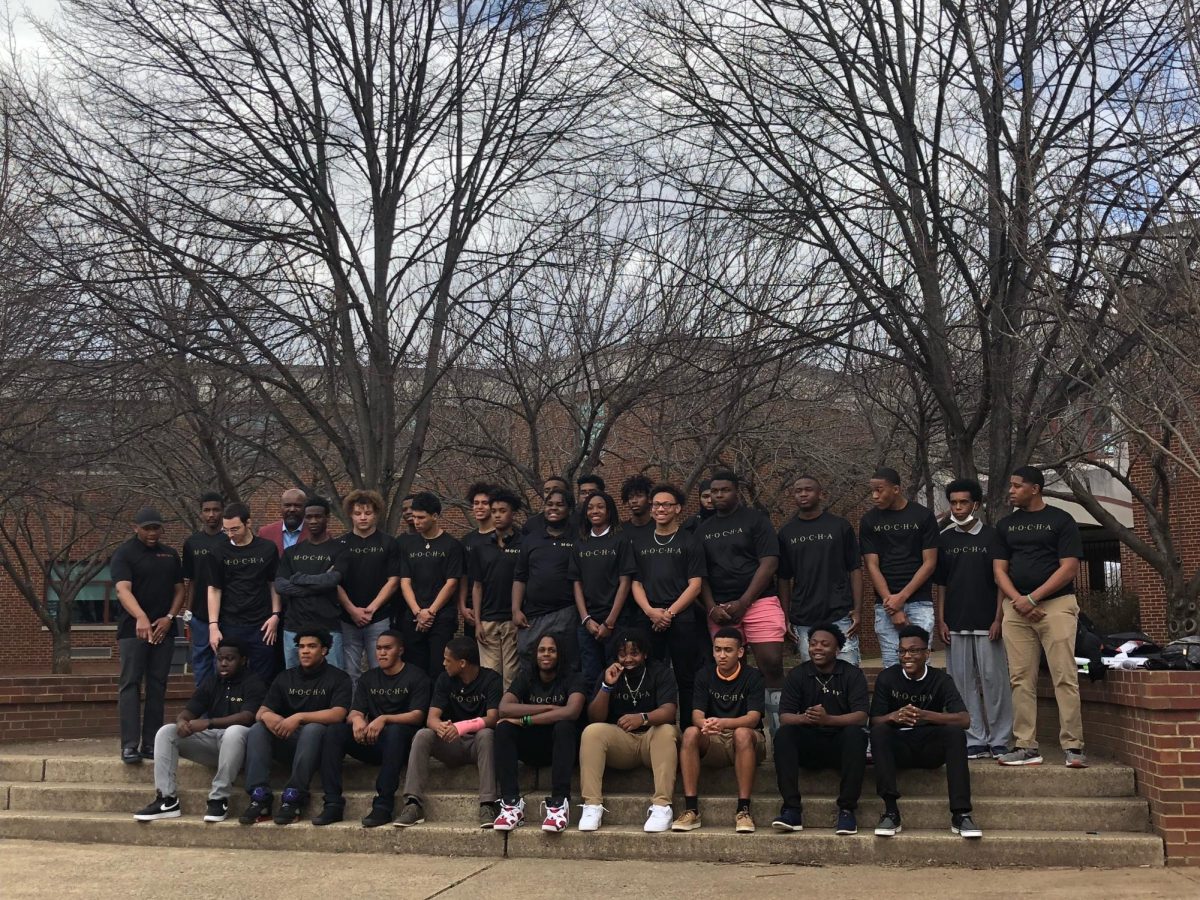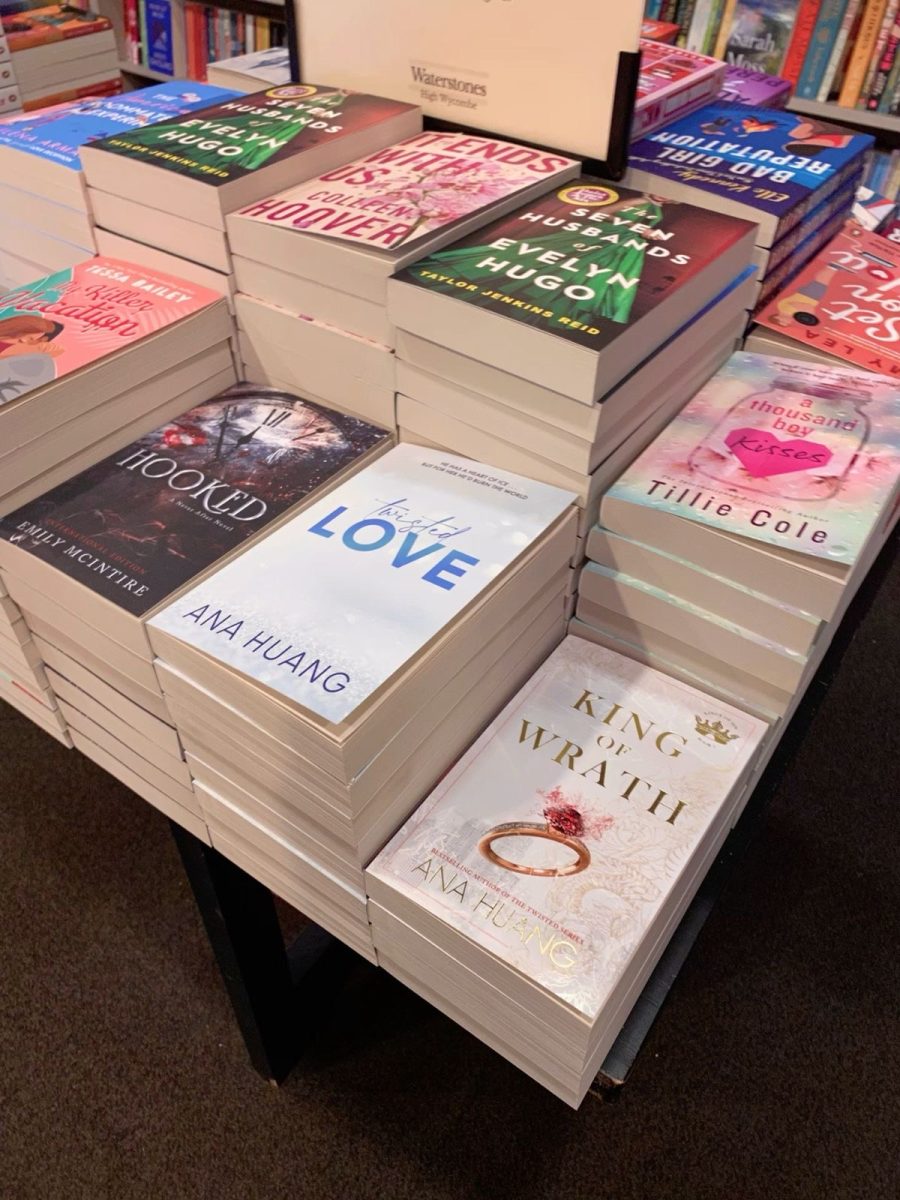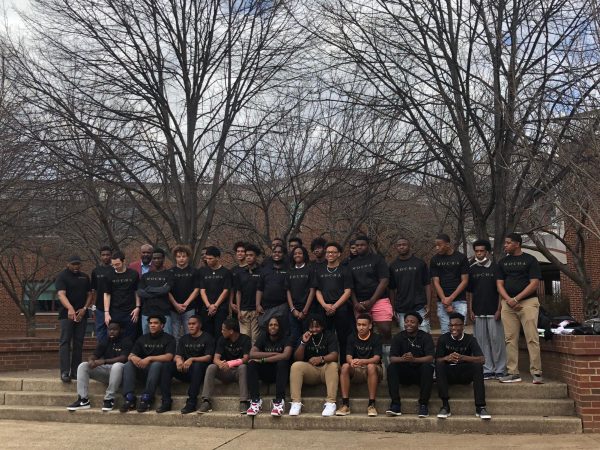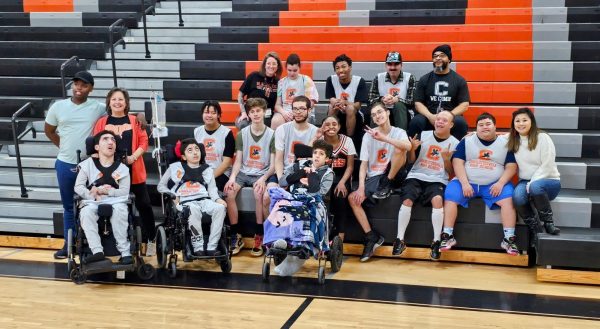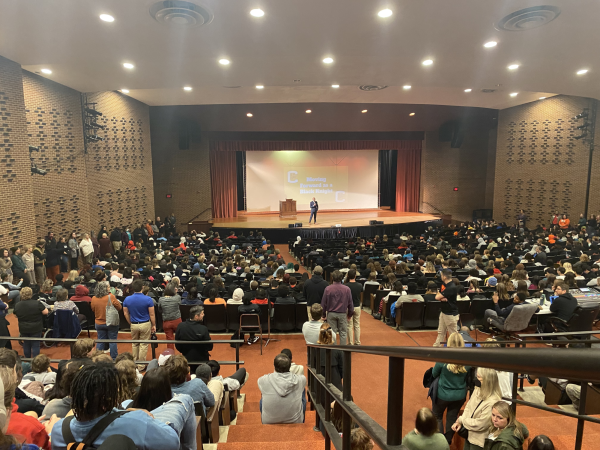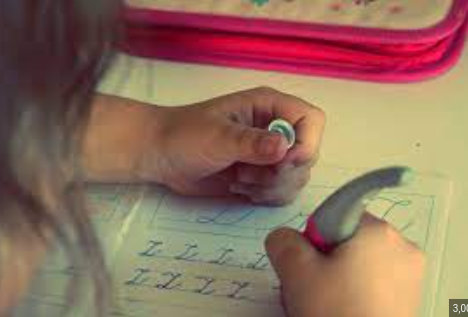Social Media: How It Hurts Us
April 27, 2018
What people tend to forget as they scroll through their social media feed is that everyone is sharing their lives through one very small, doctored lens. Social media has become an aspect of everyday life for Generation Z (mid-1990’s – early 2000’s) and with it comes a battle over personal self-esteem, body image, and a constant fear of missing out on what others are doing. Essentially, as young adults just beginning to understand our own identity, social media use can be damaging to more than just one dimension of someone’s life. For some, social media is a constant pressure, forcing you to ask yourself, is what I’m doing or what I’m wearing cool enough to get enough likes on my next post?
A recent poll was sent out to the C.H.S. community, and the results were quite informative. All responses stated that they felt as if social media had negatively impacted them at least once. When asked of any negative experiences that have occurred due to social media, one stated “1. Being comparative: My body vs. Others [sic] (Social Media version of their) body, My weekend plans vs. Others [sic] ‘branding’ of their weekend plans, my lifestyle vs. others [sic] ‘branded’ lifestyle. 2. Fake Relationships that waste my time, especially Snapchat [sic] where you are sending pointless pictures back and forth with no connective substantive conversation.”
This is an issue that everyone tends to sweep under the rug. People shouldn’t have to feel like they aren’t pretty enough, cool enough, good enough. When this mentality is instilled in the minds of young adults, how will it carry over to the next generation? Fourth graders who have Instagrams can be exposed to so much that truly has the ability to take away the innocence and happiness of childhood.
No one’s life would necessarily be perfect without social media. But social media can add unnecessary stress and it brings the pace of communication and interaction between students to a level unlike a normal school day. This has the power to make someone feel a little crazy. The effects of social media and its stress can have a detrimental impact on someone for the rest of their life.
One poll taker said, “Sometimes I look at other peoples [sic] pictures and wonder why I don’t look as pretty as them or how that person got to be so much better than me.” With trends like Snapchat streaks, kids stay holed up in their rooms because they don’t have to see their friend to “see” them. There is also a more pressing threat of social media: online bullying. Multiple poll-takers stated that they had experienced cyberbullying. Although you may think that your comment on someone’s photo was a “joke,” it wasn’t to them. Guidance counselor Ms. Avakian has recommendations for helping you disconnect from social media. There are apps such as Moment or Checky that you can download to see just how much time you spend on your phone. Set personal parameters like, don’t take your phone into your room, leave it in the kitchen. Don’t let yourself spend endless hours on your phone. By regulating your time on social media, you will feel noticeably better.
Everyone needs to be reminded that their value isn’t determined by the number of friends they have or likes they get. Validation within social media is artificial and shouldn’t be sought after. It is incredibly difficult to realize this but it is of the utmost importance to realize that your self-esteem, your happiness, will come from within. You are in charge of measuring your life, so why not recognize all the great things you have and all the things that you are capable of and go do them! Social media can be fun, but remember to go share what makes YOU happy–not anyone else! 